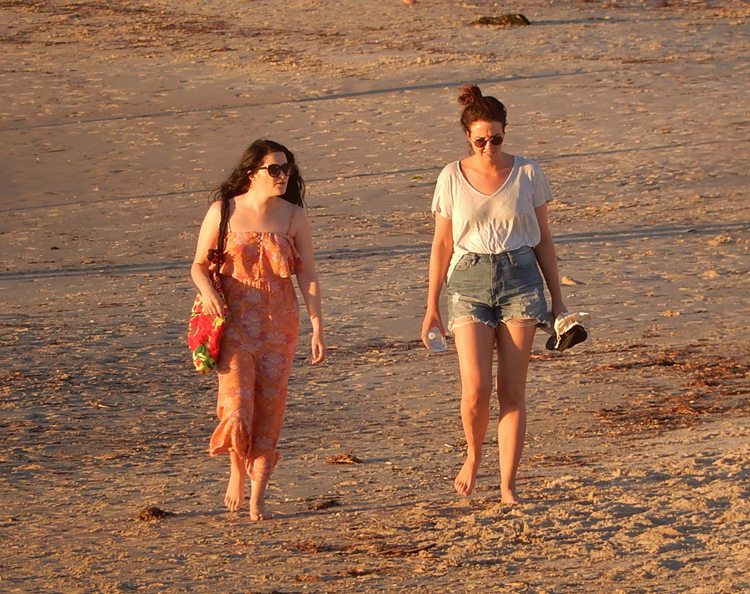Moving away from home is scary enough, but moving to a foreign country can be downright shocking. Being surrounded by a different language, culture, and system than you’re accustomed to is enough to frighten anyone into moving home. However, with the right skills, anyone can learn to feel at home in a foreign country. Here are some tips and tricks from the pros that will make your next move a breeze!
Interview with Alba Spahiu

Alone in a Foreign Country | Orlando Imperatore
Q: Tell me a bit about yourself. Where are you from and when did you move to the United States?
A: I’m from Albania. I moved here on August 26 of 2017.
Q: How did you feel the first time you stepped off the plane into the U.S.?
A: I felt so happy, so exuberant. I had finally come to America.
Q: How long did it take you to get used to living in a different country?
A: I’m still not used to it. It took me less than a week to get functional, but to understand people’s ways, it took longer. I was already familiar with America from the media, but it was different than I thought it would be. I thought I would be more alone, but that’s not the case.
Q: What do you wish you had known before you moved abroad?
A: I wish I had known that I should take it slow, because there is a lot of unknown. Back home, everything was constant because I knew it, and I was a variable, but here, everything was a variable and I had to be the constant. I wish I had known that.
Q: What are the biggest differences that you’ve noticed between your home country and the United States?
A: Every single thing. Albania is pretty small. There is a lot of emphasis on family and the way of finding success there is different. You can be much more separated here, much more divided from people. Not that there’s no community here, but everyone acknowledges that you can be completely separate from everyone else. People can be a lot more separated here, and it can be a good thing or a bad thing.
Q: Do you have any advice for foreigners who are trying to fit in after moving to a new country?
A: Always start the day early and take care of yourself before you go out and explore or try to create any relationships. Don’t ever forget your own language, because if you were brought up in one language, you cannot forget your origin because that will deteriorate your sense of self. You will start to think differently and be in conflict with yourself. Don’t forget who you are.
Learning the Language

Making Friends | Michael Coghlan
One of the most important aspects to fitting in abroad is knowing the language. After all, without speaking the language of the country you’re moving to, it will be challenging to order a meal, let alone rent an apartment or make local friends! If you’re moving to a country that speaks primarily English, then you’re in the clear. Even if you aren’t, though, remember that many countries include English in their core curriculum, so it’s likely that you won’t have trouble communicating on a basic level with many of the people you encounter. It’s always helpful to learn the primary language of the country, though, even if most of the population knows some English. Speaking the language fluently will come with time, but it’s helpful to know the basics when you arrive. Locals will have more respect and patience for you if you make the effort to speak their language, because it proves that you want to be fully immersed in their culture. If you’re not sure where to start, check out the Duolingo app for free, or purchase a subscription to Rosetta Stone for more thorough lessons. You can also purchase workbooks from almost any bookstore to learn grammar and vocabulary basics, and listening to podcasts in the language you’re trying to learn will help your fluency enormously. Try to start learning once you solidify your plan to move to provide yourself with ample time to become proficient. Don’t stress if your language skills aren’t perfect upon arrival; fluency comes with immersion, and you’ll have plenty of time to learn once you settle down!
Do Your Research
The worst thing you can do is arrive in a new country with no knowledge of what you’ve gotten yourself into. Make sure to research the differences between your home culture and the one of your future home; there are often large distinctions that can be shocking if they catch you off guard. Look into every aspect of the culture: the food, the slang, the education, the economy, the sleep patterns, the transportation methods, the social scene, and the nuances of verbal and nonverbal communication. There are plenty of books available that outline the differences between cultures for most countries; before moving to France, my whole family read Polly Platt’s French or Foe, which helped us immensely, because we knew what to expect upon arrival. The locals will appreciate that you’ve taken the time to get to know their culture, and will repay you with hospitality and friendship.
Last Minute Preparations

Preparation is Key | Treefort Music Fest
Besides the obvious preparations – visas, accommodations, passports, and currency – there are a few things you should prepare before you catch your flight. Make sure you have plenty of cash in case of an emergency! You never know when something will come up, and you won’t regret preparing beforehand. Tell your family and friends your address before you leave, just in case. If you so desire, look into an international phone and data plan so you can contact your loved ones at any time. Make sure you let your bank and insurance companies know you’re leaving. Double-check that your passport and other essential documents are renewed and filled out. Look into immunizations that are required or suggested for the country you’re heading to. It’s always a good idea to purchase travel insurance, because you never know when things could take a turn for the worse. If you’re relocating long-term, sell your possessions at home – you won’t need them anymore, but you can always use the extra cash! Confirm that all your affairs are in order and that you have all the necessary items to establish residence in your future home. Don’t rush through this process; it’s arguably the most important step before moving abroad, so take your time!
Once You Arrive…

Exploring the New Home | Orlando Imperatore
Welcome to your new home! Once you’ve passed through customs and settled into your cozy apartment or spacious cottage, it’s time to start exploring! Get your bearings by strolling through the streets of town or taking day trips by train to discover the surrounding area. Observe the behavior of the locals and take note; you want to fit in, so try not to speak too loudly or act obnoxiously. If you want, notice what locals are wearing and head over to one of the local boutiques to grab new garb. Make conversation! If you’re friendly and you know the basics of the local language, it’s likely that you’ll make some new friends or get covert information you wouldn’t find otherwise. Check out the areas that don’t attract tourists, like the coffee shop down the alley or the market on the corner of the block. Try your best to get to know the area, its people, and their language and culture. It may feel foreign at first, but you’ll feel at home soon enough!
Moving abroad can be scary – it’s one of the most precarious one can put himself in. However, with enough preparation and effort, moving to a foreign country can be the best decision you’ve ever made. Once you’ve looked into the culture, language, and completed the tasks that serve as stepping stones into your new home, you’re ready to go! Don’t be scared; once you move abroad, you won’t ever turn back!

